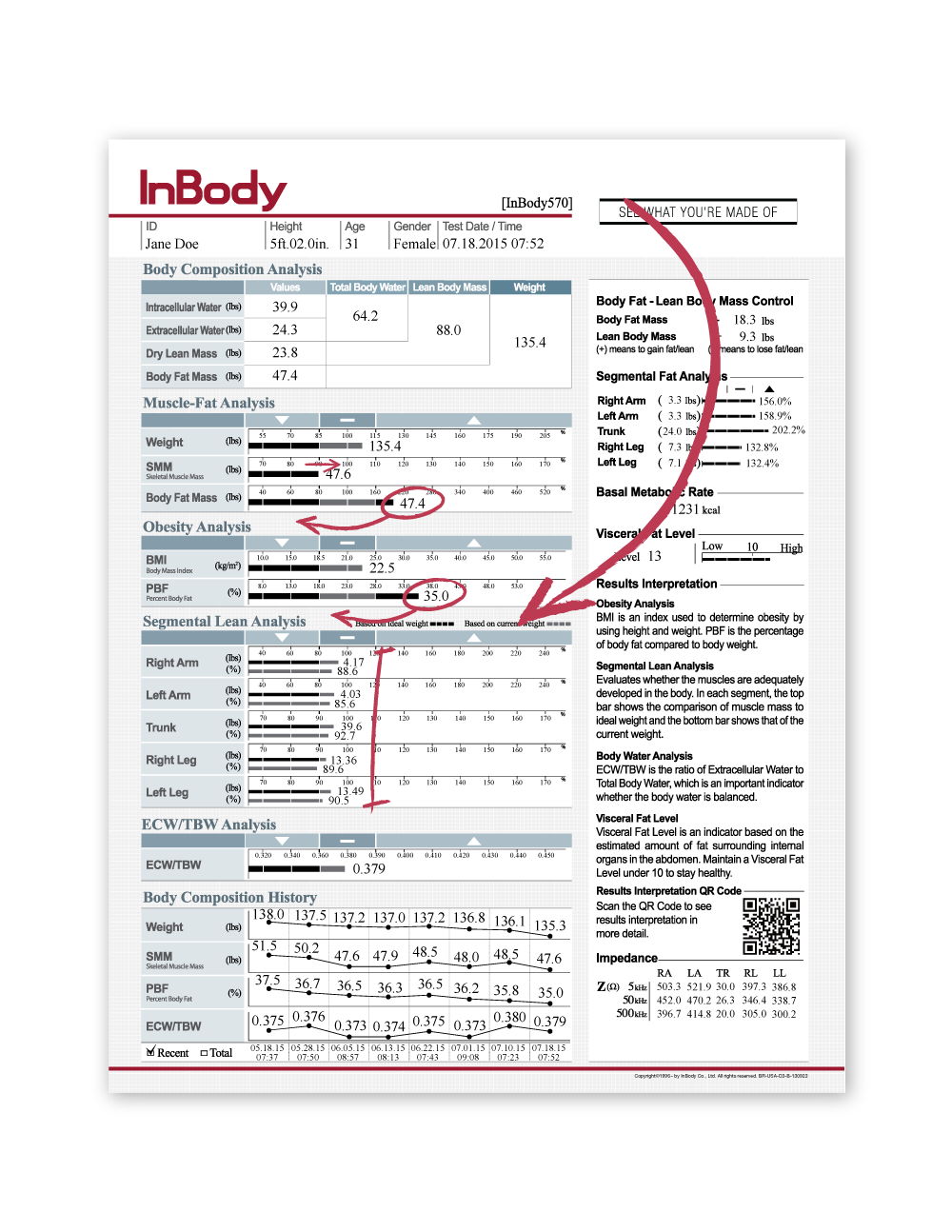Embark on your wellness journey by initiating an Inbody testing session at Bodycentre. Our professional one-on-one assessment will guide you through your personalized report, connecting you with insightful technology that simplifies the path to achieving your fitness and health goals. Understanding your Inbody testing report at Bodycentre not only enhances the effectiveness of your gym time but also ensures that your efforts align with your unique health objectives. Serving Costa Mesa, Newport Beach, Irvine, and all of Orange County, Bodycentre is dedicated to optimizing your well-being through informed and tailored fitness approaches.
InBody scan testing
ADVANCED ANALYSIS
The InBody body composition analyzer goes beyond traditional body composition analysis, measuring fat, muscle, and total body water. Total body water data can be divided into intracellular water and extracellular water, values important for understanding a user’s fluid distribution in medical, wellness and fitness contexts.
What is Body Composition?
Body composition is a method of breaking down the body into its core components: fat, protein, minerals, and body water. It describes your weight more accurately and provides a better glimpse into your overall health than traditional methods. Body composition analysis can accurately show changes in fat mass, muscle mass, and body fat percentage.
Why is body composition important to measure?
Our conversations on diet and fitness tend to focus on the amount of weight that we want to gain and lose. What they fail to consider is that two people of the same sex and body weight may look completely different from each other because they have a different body composition. Body composition describes the amount of fat, bone, water, and muscle in the body. Measuring your body composition will tell you your own body’s unique makeup and help you identify areas to work on to improve your overall health and wellness.
Body composition analysis is a method of describing what the body is made of, differentiating between fat, protein, minerals, and body water to give you a snapshot of your health. InBody is in the business of body composition analysis, and we’re here to teach you the importance of it today’s day and age to help you reach your health goals from the inside out.
How can BMI be inaccurate and misleading?
You may not have heard of body composition before, but you’re probably familiar with BMI. What’s the difference? Body Mass Index (BMI) is a common method used to assess the health of an individual by comparing the amount of weight they carry to their height: BMI – kg/m2
Despite the widespread use of BMI in clinical practice, BMI has many limitations and is a poor tracking tool for weight change because there’s no way to identify if changes in your weight are in fat or muscle. Predicting health or mortality using a single number such as BMI oversimplifies health risks and ignores important factors that contribute to positive health.
When you’re trying to get healthier, you’re most likely focused on losing fat and gaining muscle. Scales or BMI cannot tell you how much of your weight loss is fat, muscle, or body water, but body composition can.


